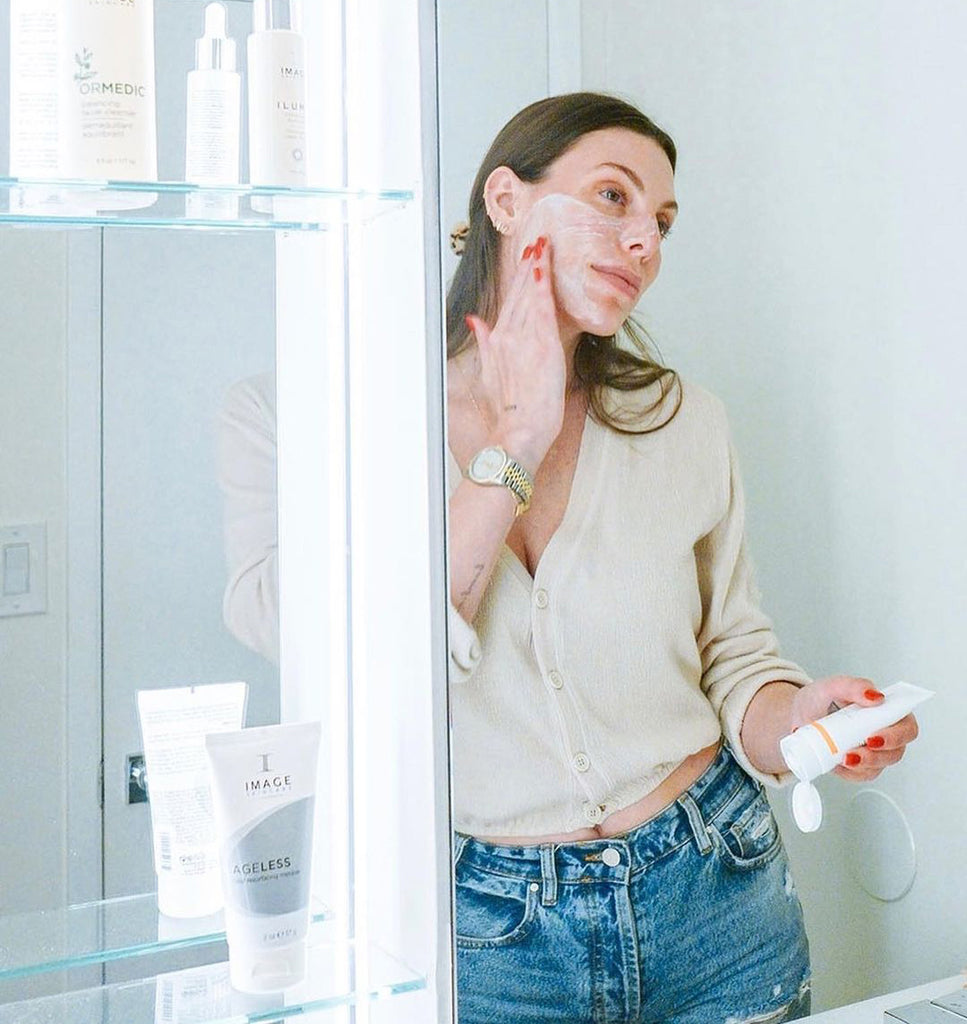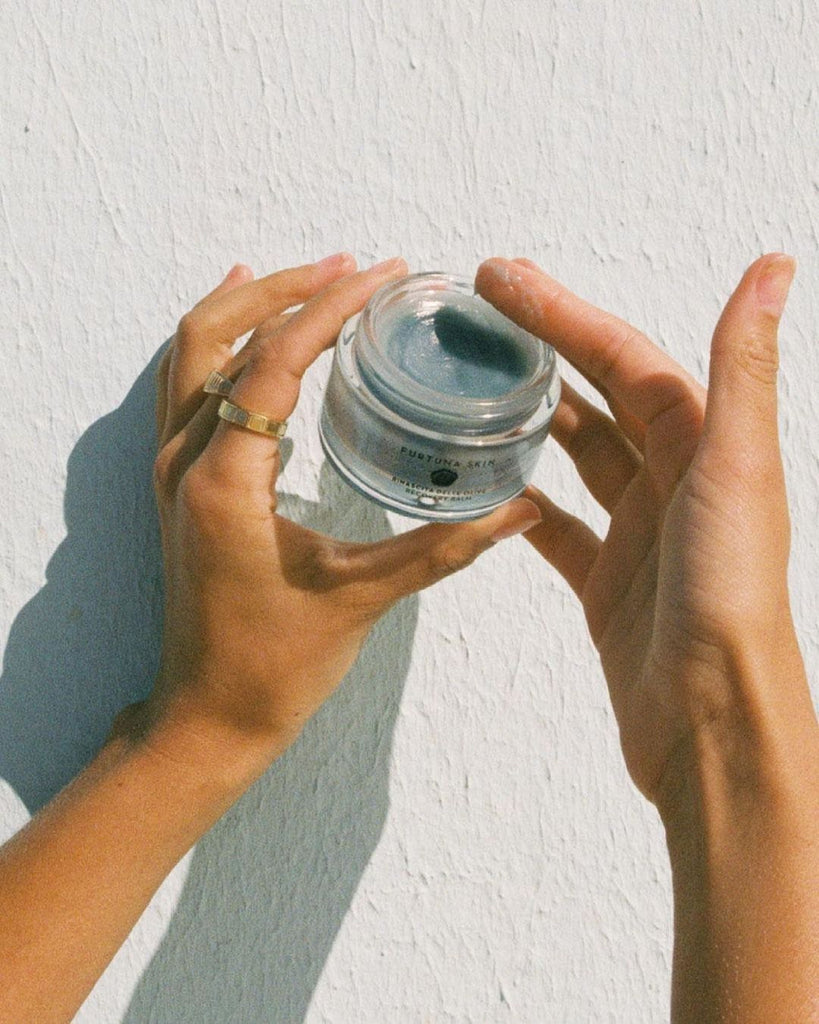Retinoids are the skin care ingredient that everyone seems to know is beneficial for the skin but can't quite verbalize why. And while we've become well-accustomed to frequent use of retinols, there are actually more forms of the vitamin A out there might be more powerful. Take retinaldehydes for example, a retinoid up to 20 times more powerful than retinol due to its closer proximity to retinoic acid. And even though it's still a bit rare in many skin care products, it may be the key ingredient to fighting photoaging.
Before retinaldehyde can be beneficial to the skin, it has to go through a transformation process. "In human skin, retinaldehyde is a retinoic acid precursor that is formed as an intermediate metabolite in the transformation of retinol to retinoic acid," Dr. Flora Kim, MD, FAAD, Dallas dermatologist, tells TZR. "Thus, because retinaldehyde is metabolized to retinoic acid in human skin, retinaldehyde is beneficial in the treatment of photoaging." Dr. Kim says that retinoic acid can also help address brown spots and pigment, soften the appearance of fine lines, increase collagen production, smooth and soften your skin’s texture, help minimize pore size, and maximize the efficiency of skin cell turnover. Candace Marino, Hollywood facialist, agrees. "Retinaldehyde has a multitude of skin benefits including improved firmness, increased elasticity, providing a thicker dermis, and a reduction in acne and congested pores, the list goes on," she says.
Shutterstock
But incorporating retinaldehydes into your routine should be approached with caution. "There are several schools of thought when it comes to when vitamin A products should be applied," Marino says. "In my opinion, forms of vitamin A — like retinaldehyde — may be applied during the day, and for most skin types retinoids are best used and tolerated in the evening. I like to think of the morning as the time to protect our skin and nighttime as the time to repair." However, Marino says that there are some instances where retinoids twice a day is okay. "Once a client has gotten through the routinization phase and is not sensitized, then your skin should be fine," she says. But no matter your skin type, if you're using retinoids and not wearing SPF, you're doing more harm to the skin than good. As retinol makes the skin more sensitive to UV rays, you can ultimately reverse any progress made. "This is why I recommend strictly in the evenings," Dr. Kim says. "Unless a product is able to deliver the retinaldehyde in away that it is 100% protected from UV light, you should only apply at night."
Shutterstock
But good news: Your other skin care products probably won't interfere with your use of retinaldehyde. "Retinaldehyde generally plays well with other skin care ingredients," Marino says. "I think the most important one to note is that an antioxidant serum will play nicely as the morning counterpart to retinaldehyde. Vitamin C is an ingredient that is critical in the production of collagen — retinoids are noted for their collagen-stimulating properties — so this will help for the retinoid product to go to work for collagen. It will also help prevent damage from the environment." Notably, many skin care products boasting the ingredient also include peptides, and hyaluronic acid.
Both experts concur, however, that just about everyone is an eligible candidate for retinaldehydes. "Perhaps instead of instructing someone with sensitive, easily inflamed skin to completely steer clear of retinaldehyde, what I recommend is to start with a small quantity (just one tiny pea size for the entire face) and very minimal frequency, like one night a week," Dr. Kim says. "I encourage patients to listen to their skin and start with whatever frequency your skin will initially tolerate." Marino agrees. "I firmly believe that every skin type over the age of 18 needs to be on some form of vitamin A, because of its collagen-producing benefits and cellular turnover acceleration," Marino says. "For those who are extremely sensitive, it's fine to stay on a weaker version of the vitamin A molecule, the only real difference is that it takes longer for the product to become active in the skin."
But, there are of course exceptions. "If you are pregnant or breastfeeding, you may want to ask your dermatologist about the specific product you have in mind as the concentration of the retinaldehyde will be a factor," Dr. Kim says. "But if you want to play it completely safe and are not wanting to take any risks, the general category of retinoids is usually not advised when pregnant."
We only include products that have been independently selected by The Zoe Report’s editorial team. However, we may receive a portion of sales if you purchase a product through a link in this article.
1A Retinal and Peptides Overnight Mask
With a 13.5% peptide complex, this overnight mask repairs tired, dull skin.
Experts:
Dr. Flora Kim, MD, FAAD of Flora Kim Dermatology in Dallas, TX.
Candace Marino, celebrity facialist in Los Angeles.



